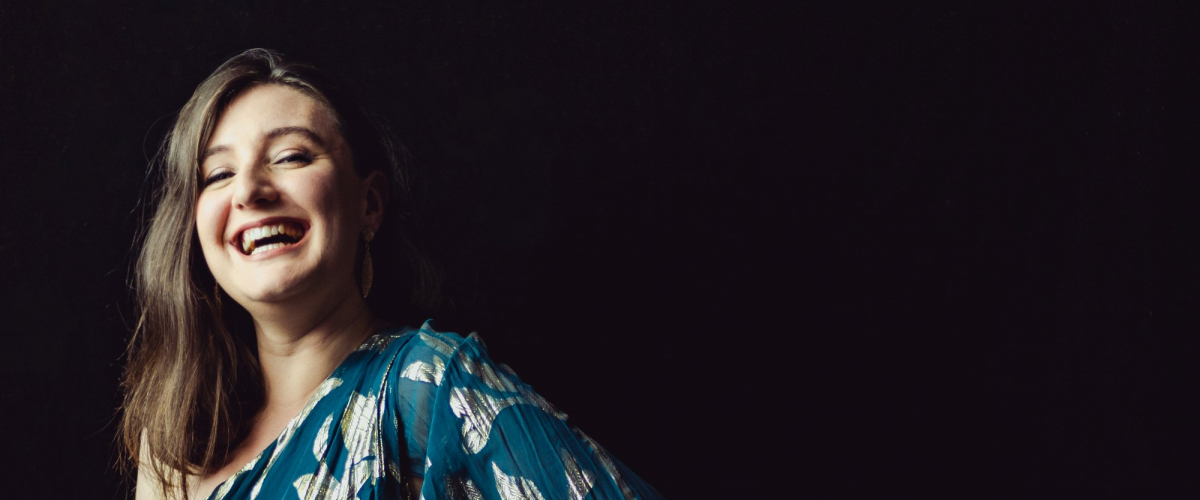
Beth Taylor
Lauded by The Guardian for her “dark and focused” voice, “sensational coloratura” and “spectacular singing,” and by The Times for her “fierce, indeed terrifying” portrayals, Beth Taylor is one of today’s most electrifying young mezzo-sopranos.
In 2025/26 she sings the title role in the final scene of Rossini’s Ermione with the Monteverdi Choir at London’s Cadogan Hall, joins Gustavo Dudamel and the Los Angeles Philharmonic for Mahler’s Second Symphony in Los Angeles and on tour to Asia, and returns to Carnegie Hall for Beethoven’s Ninth Symphony with the Orchestra of St. Luke’s under Raphaël Pichon, as well as to the Vienna Symphony at the Konzerthaus. Further highlights include Bach’s Mass in B minor and Mahler’s Eighth with the Berlin Philharmonic and Kirill Petrenko, Elgar’s Sea Pictures with the London Philharmonic, Elgar’s The Dream of Gerontius with the Yomiuri Nippon Symphony Orchestra, Mahler’s Eighth with the Orchestra of the Gran Teatre del Liceu, Berlioz’s Les Nuits d’Été with the Royal Danish Symphony Orchestra, Mahler’s Third with the Bergen Philharmonic, Das Lied von der Erde in Rouen, Tippett’s A Child of Our Time with the BBC Scottish Symphony Orchestra. Beth also appears with all of Munich’s leading symphonie orchestras within just a couple of months: the Bavarian Radio Symphony Orchestra in Mahler’s Second Symphony under Sir Simon Rattle, the Munich Philharmonic for The Dream of Gerontius, and the Munich Radio Orchestra in Karl Jenkins’s The Armed Man. At Wigmore Hall, she appears in recital with Hamish Brown. Opera performances include Speranza in L’Orfeo in Bilbao and a tour as Cornelia in Handel’s Giulio Cesare with Il pomo d’oro to major European cities including Vienna, Amsterdam, Paris, Madrid, and Barcelona.
Her recent opera performances include the title role of La Cenerentola and Bradamante (Alcina) at Opéra de Nancy; Cornelia and Bradamante at Glyndebourne; Arsace (Semiramide), La Cieca (La Gioconda), Erda (Das Rheingold) and Erste Norn (Götterdämmerung) at Deutsche Oper Berlin; Giuliano Gordio (Eliogabalo) at Zurich Opera; Falliero (Bianca e Falliero) and Dardano (Amadigi di Gaula) at Oper Frankfurt; as well as staged versions of Mendelssohn’s Elias in Lyon and Bach’s St Matthew Passion in Basel.
On the concert platform she has appeared as Anna (Les Troyens) at the Salzburg Festival, Berlin Festival, BBC Proms and Berlioz Festival; Cornelia with The English Concert at Carnegie Hall, Barbican Hall and in San Francisco; the Sorceress (Dido and Aeneas) in Madrid, Hamburg, Paris, Luxembourg and Essen; Argia (La Merope) at the Concertgebouw Amsterdam; Ursule (Béatrice et Bénédict) at the Berlioz Festival; and Teseo (Arianna in Creta) at the London Handel Festival. Other major engagements include Beethoven’s Ninth with the Berlin Philharmonic at Baden-Baden, Mahler’s Third with the Royal Stockholm Philharmonic, Das Lied von der Erde with the Orchestre de Chambre de Paris, her Canadian debut with the Orchestre symphonique de Montréal, her US debut with the Handel and Haydn Society in Boston, and appearances at the BBC Proms, Théâtre des Champs-Élysées, Gulbenkian Lisbon, Elbphilharmonie Hamburg, and Aix-en-Provence.
Beth has collaborated with conductors including Leonardo García Alarcón, William Christie, Sir John Eliot Gardiner, Edward Gardner, Andrea Marcon, Ingo Metzmacher, John Nelson, Rafael Payare, Kirill Petrenko, Raphaël Pichon, Sir Donald Runnicles, and Constantin Trinks.
A grand finalist of the 2023 BBC Cardiff Singer of the World, Beth Taylor is the winner of the 2022 Elizabeth Connell Award, third prize at the 2019 Wigmore Hall Competition, and winner of the 2018 Gianni Bergamo Classical Music Award. She studied at the Royal Conservatoire of Scotland and The Open University, and has worked with Jennifer Larmore, Margaret Izatt and Iain Paton.
September 2025